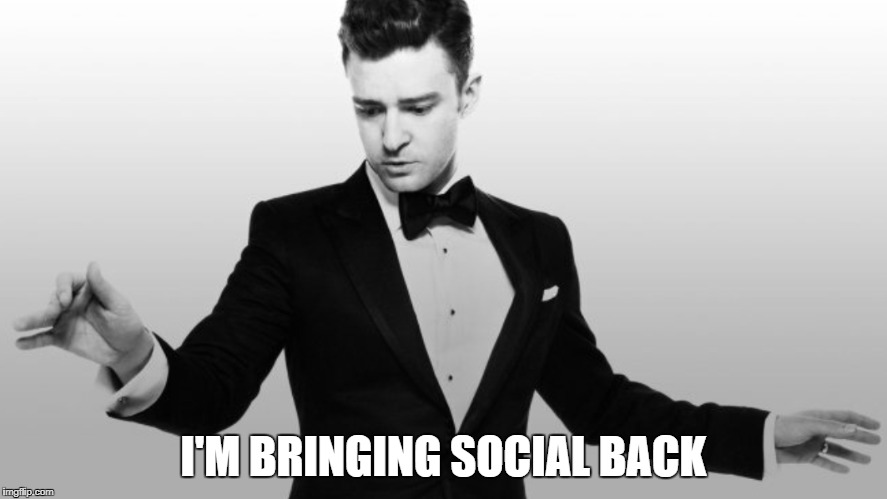Facebook set it’s house on fire by changing how the newsfeed works – so what do we all do now?
There’s some things in Social Media Marketing that will always be true. I’m going to start with those, as many publishers and brands will really need to go back to the basics to make sure they are still reaching their audience.
These are simple, but often overlooked and there’s only 3 main ones…
1. Strategy
What do you WANT from your Facebook activity? What does success look like for your accounts?
Is it sales, brand awareness, leads, customer service?
Think about what you actually want to achieve by being on Facebook in the first place. What’s the best way to achieve your goals, bearing in mind Facebook is saying they will be preferencing “meaningful” content that evokes deeper thought and attracts long comments.
I’ll outline a few formats I think will still be viable under this newsfeed change in the next section.
2. Audience
Your Facebook page isn’t for you.
Let that sink in.
It can be ABOUT you, but it’s supposed to be for your AUDIENCE. Facebook’s trying to put the Social back into Social Media.
What does going back to basics here look like? Stop creating content you like, and put your efforts into content that means something to your audience. Keep it relevant, put some thought into who your audience is, what they’re day looks like, when they want to hear from you and you should see success with Facebook’s new focus – creating a meaningful experience, keeping you safe from the newsfeed update.
Dive into your insights and check out who your audience are (you might be surprised) and always keep them central to your content creation (or curation)
You may need to post less often to achieve success here, but putting the extra thought into your content, and cutting down on your frequency could definitely help your newsfeed visibility.
3. Community Management
This one has been around as long as Facebook itself, but it’s lost a bit of shine, at least to me if I’m honest. I’d say this was mainly due to the amount of effort it takes to run a community, the fact that you can’t really measure community ROI, and the declining organic newsfeed reach which pushed all us former Community Mangers into the realm of Paid.
Having said that, it’s always been important to answer the questions, queries and issues of your fans and customers on your Facebook page. It’s Social after all!
In the announcements by Facebook in the previous week they’ve stated that simply replying to all your comments isn’t enough. They say they don’t care about page-to-person interaction (I have a hunch they still keep tabs on it, like they do with answered messages in Messenger, but I have no proof) they only care about person-to-person interaction.
So if you already have a community of active commenters, who participate in thoughtful conversions about the topics around your brand – this is going to be a huge advantage! If you don’t it looks like trying to build one is the key here.
I’m not going to lie, starting from scratch is going to take a lot of effort on your part, especially if you’re a small business. For larger businesses this will mean they might decide to dedicate a Social Media team member to “conversation starter” rather than simply moderating comments or providing customer service.
It also makes me wonder about the Telcos. If you’ve been on a Telco page lately (or ISP for that matter) you’ll find long, detailed accounts of people’s greivances. Is this what Facebook will end up preferencing in the newsfeed? Might be good news for NFPs and cause related communities?
I guess we’ll have to wait and see…
Another thought pops into my head about trolls. Will brands now ‘Fake Troll’ themselves to get longer comments? Yuk. Let’s hope not.
Ok, so that’s my 3 back to basics tips. Bring Sexy Social Back with a re-think about your strategy and why you are on Facebook in the first place, ALWAYS post audience-first, and have a plan to engage your community.
How are you going to stay ‘newsfeed visible’ though?
It’s all very well and good for the answer to be “create better content” but HOW?
Here’s some tips I think will still be effective on Facebook, depending on your niche and audience.
Facebook Live
Facebook Live generates heaps of interaction. I wouldn’t say long comments per se, but it’s an awesome way to get your content seen in the newsfeed. If you haven’t thought about how you could go live with a tutorial, or something that helps your audience then the time is now.
AMAs
Ask Me Anythings would be a good way to get people thinking, writing longer comments and having meaningful interactions in their newsfeed. As a brand or business owner there’s surely things you know that your audience would be interested in. You could always invite guests in your niche to answer questions for your audience to keep it interesting.
You could even schedule these as Facebook Lives! Double whammy.
Facebook Groups
This newsfeed update will affect groups to a degree, but they tend to inspire more thoughtful dialogue as people feel safer to share in a group of likeminded people.
Perhaps your brand could benefit from it’s own group?
Facebook Events
As well as groups, events get a lot more interaction than pages. If your brand hosts events you can use them to help keep the interaction from the event off the main page and in one spot where it’s easily manageable, but more importantly you can promote them too (as long as they have more than 15 “attending” responses)
The final one is pretty obvious…
Facebook Ads
There’s a way you can get your important content into the newsfeed. You can pay for it to appear there.
Facebook did announce they were running out of ad inventory, but everything they’ve mentioned so far in this newsfeed update hasn’t included ads.
But don’t be fooled into thinking you can just boost a post that wasn’t written with your audience in mind and achieve success.
I think this newsfeed update has made sure we all know Facebook is getting serious about the social aspect of Social Media, and with potentially more brands moving into the paid realm, ads may get more expensive.
Over to you readers, what do you think? Have you seen any changes on your newsfeed yet? I’d love to know!


